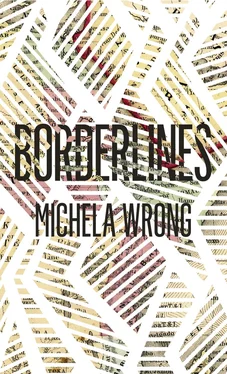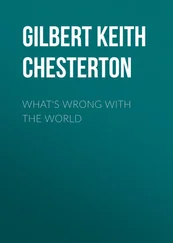Green Eyes, as I had mentally tagged him – like any good lawyer, I’d asked for his name but he’d only grunted – hadn’t turned a hair. The absence of reaction, in fact, was the most terrifying thing about the whole affair. An insincere apology, an attempt at intimidation, anything would have been better than the total lack of expression he’d shown as he had turned on me his light, limpid gaze – so disconcerting in this country of dark brown eyes – and said, ‘No flight for you tonight.’
He had taken me to identify my luggage so it could be removed from the pile. He had led me to Immigration to have my passport’s exit stamp crossed. He had walked me to the kiosk where I’d paid my airport tax to get the dollars returned. Each of these small transactions had been conducted in silence by the officials who had processed me twenty minutes earlier, this time without the friendly smiles. They knew now I was toxic, leprous. Then Green Eyes had brought me upstairs to this room, where the only furniture was a desk, pushed against the wall, and a plastic chair, and indicated I wait.
My first reaction had been to get out my mobile and start composing a text to Winston. I was just typing ‘detained at’ when Green Eyes held out his hand. I handed it over, unzipped my shoulder bag and took out my laptop as if to start it up. He held out his hand again, this time more brusquely, and I passed over my weathered Dell. ‘No computer. No mobile,’ said Green Eyes. ‘All is forbidden.’
Over the next hour and a half, I’d watched through the glass as the other passengers on the flight went through the routine I, too, had been planning: the pointless trawl of the airport shop in search of suitable presents (biography of Julius Nyerere, anyone? Copy of the Ministry of Health’s five-year plan?), a beer at the bar, cigarette on the terrace, the cluster at the boarding gate, a final cursory search before disappearing through the doors.
A few threw curious, embarrassed glances in my direction. Wasn’t that the deputy director of UNHCR, the UN refugee agency? I’d certainly met that blond young man – Norwegian Embassy? Danish? One of the Scandies, in any case – at some party. But I did not call out. ‘All is forbidden’ had somehow done its work. I was already aware of a film between me and my fellow expatriates, the gelatinous membrane that separates the innocent from the compromised. A strange shame held me back, the conviction that they would have walked on past me as I mouthed my silent appeal.
‘Come,’ said Green Eyes. I followed his beckoning finger out of the room, past the café-bar, now closing, and across to the terrace, which looked out over one of the least-used runways in Africa. Green Eyes pointed to where the Alitalia flight was turning on the tarmac, testing its flaps. I knew exactly what the atmosphere would be like on board. Some destinations specialise in jolly flights, others come tinged with relief, a few drenched in heartbreak. Flights from Lira always seemed infused with a certain grim pragmatism. No one aboard would be ending a wonderful holiday or laden with souvenirs. The airport was not the chosen port of departure for fleeing locals: too visible, too monitored. The expatriates, banking generous salaries for what was judged a hardship posting, would be heading off for briefings back at Headquarters, short breaks with semi-estranged wives and children parked at boarding-school. They would be back all too soon.
The plane hurtled past the terminal building. Heading out across the plateau, it wheeled until its nose pointed north-west. I could almost hear the clink of the mini-bar bottles as the air stewards handed out the required anaesthetics, tucking a few extras into seatbacks. A few minutes later, it was no more than a winking light in the careless splatter of stars that was the Lira night sky. Green Eyes savoured my expression, his point made. I was on my own.
‘Come,’ he said again. We walked back to my holding area, where my turquoise case crouched, like a giant scarab beetle. Funny how you can come to hate an inanimate object. In one of those side pockets nestled the passports, cash and academic certificates that I assumed lay at the root of this whole sorry affair. Someone, it was clear, had blabbed. I could guess who that might be.
For a while, I sat in the plastic chair. After an hour, buttocks numb, I moved to the floor, draping myself strategically over the case – a girl needs a pillow, no? I put my coat over my head to shield my eyes from the light and under that screen, my hands got working. At the very least, I needed to separate the money – an aromatic wodge of hundred-dollar bills – from the rest. I could claim personal ownership of the cash, even if that meant admitting to breaking currency regulations. The passports and certificates were another matter. Maybe there was somewhere in the airport I could dump the incriminating evidence. With infinite slowness, I opened the zipper into the bag’s side-pocket, closed my hands on the documents and slipped them up the sleeve of my sweater.
When I removed the coat from my head, Green Eyes was staring at me. Had he noticed the wriggling? ‘I need to go to the Ladies,’ I said.
‘Come.’
I followed him down the corridor. Three sinks, dripping taps, the smell of bleach, more bad lighting and a wall-to-wall mirror, which confirmed that, yes, I did indeed resemble a warmed-up corpse. Disconcertingly, Green Eyes did not make his excuses. I entered one of the cubicles, locked the door, sat down without dropping my trousers. Think! Where could I stow the documents? Down the drain? That would cause a flood. How about the cistern, Al Pacino-style? If Green Eyes had not followed me in, maybe. But he would certainly hear the scraping as I lifted the heavy porcelain lid. As for the Papillon solution, no orifice was going to accommodate two passports. I’d run out of ideas. I transferred the papers from my sleeve to my knickers and flushed the toilet. Then I walked past Green Eyes with my face set. Hollywood had failed me, as it tends to. If he wanted to find my cache, he would.
I resumed my previous position slouched over my bag. Green Eyes was playing it cool, so I would match him for insouciance. I would simply fall asleep from sheer boredom. But, of course, too many internal voices were clamouring to be heard. One was near-hysterical, something approaching a banshee shriek: ‘Oh, how could you? How could you – how could you do this to your parents? And what about Winston? After all he’s done? You stupid, stupid, stupid cunt.’
I began composing a speech, my last presentation. ‘I fully realise the mortifying position I have placed you in, and I can only apologise for that,’ it began. ‘Not only do I expect you to disassociate yourself from me, I demand it. I betrayed you personally and put the case at risk, both unforgivable acts. I have surrendered any claim to professionalism. No one else should pay the price for my rashness.’
The other voice was quieter, grimly realistic: ‘So, let’s think this through. To anticipate is to be strengthened. This is a pretty serious offence. Winston will fight for you, you know that, whatever you tell him. The embassy might try to help, but that could just make things worse. The one thing going for you is your skin colour. No government wants the Amnesty International press releases, the Human Rights Watch reports that go with torturing or executing people like you. Even this government. So we’re probably talking, if you’re lucky, a few years in a container on the coast. Can you handle that? Hottest place on earth. No privacy. Malaria. Cholera.’
A girding of the loins. And the answer that came back was a slight surprise: ‘Yes. Yes, I think I can.’
But then an image came to mind, of a rough sketch I’d spotted on Winston’s desk, drawn by a young man who had compensated for his limited artistic ability with a certain graphic brio. It showed someone lying on their stomach, back arched, knees bent, hands reaching behind to seize toes. In yoga, something similar is known as the Bow Pose, a good way of stretching the spine. In the enemy prisoner-of-war camp into which that youngster had had the misfortune to fall it was known as the ‘helicopter position’. The accompanying text, written by a doctor from the Red Cross, helpfully explained that the same technique was used in Iran, where it was called ‘the chicken kebab’, and in Latin America, where it was dubbed ‘the parrot’s perch’. It became intensely painful after a few minutes, the doctor wrote, and, if sustained, could cause deformed bones, deep sores and, in a few recorded cases, pulmonary embolism.
Читать дальше












